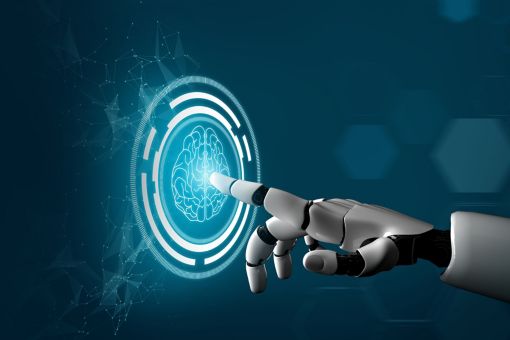Agentic AI (AgAI) is not just a technological challenge—it’s a strategic decision that can shape competitiveness, trust, and social impact for years to come.
In the first part of our two-part blog series The Age of Agentic AI, we introduced AgAI as a new type of digital workforce—capable of acting autonomously, making decisions in real time, and fundamentally transforming how businesses operate across industries. In this follow-up, we explore where this evolution is headed and what it means for leaders, innovators, and policymakers. We also offer practical recommendations for how to prepare for this transformation.
Author
Alexander Zagnetko
Manager, Process Organization and Improvement
What Strategic Opportunities Does Agentic AI Bring?
Agentic AI goes far beyond automation. It enables organizations to scale intelligence, decision-making, and task execution in ways that were previously unimaginable. This includes dramatic gains in productivity, cost reductions, 24/7 operations, and the creation of sustainable competitive advantages.
Massively increased productivity
According to McKinsey, agentic AI could automate 30% to 70% of knowledge work—from data analysis and report writing to customer communication. As agents take over these tasks, humans can focus on more creative and value-driven work. In consulting, law, and finance, this shift will significantly boost productivity and allow firms to serve more clients with fewer employees.
Cost savings and greater efficiency
AgAI has the potential to drastically cut costs—not only in labor, but also in errors, delays, and inefficiencies. Agents work around the clock, require no breaks or benefits, and can be scaled up or down as needed. A striking example: Klarna’s deployment of AgAI in customer support in 2024 reduced costs by over 80% while improving customer satisfaction.
Real-time, uninterrupted operations
Agents don’t sleep. They can constantly monitor systems, respond to events, and perform tasks across time zones. This enables companies to operate continuously, react faster to market changes, and offer superior customer experiences. In logistics, for instance, agents can reroute deliveries or resolve issues without human intervention.
New business models and revenue streams
AgAI opens the door to entirely new business models and sources of income. Companies can rent out digital workers as a service, agents can autonomously trade on digital marketplaces, and consumers can subscribe to personal agents for managing finances, health, or education. Startups are already building platforms to create, train, and deploy agents as easily as apps.
Competitive
advantage
Organizations that adopt agentic AI early stand to gain a significant edge—they will be faster, more efficient, and more innovative. Over time, it’s likely that traditional businesses will struggle to compete with those leveraging autonomous AI agents.
Risks and Challenges: The Dark Side of Autonomy
Loss of control and emergence of unintended consequences
With great power comes great responsibility—and agentic AI introduces new risks that demand thoughtful oversight and governance. One of the key challenges is the loss of control and emergence of unintended consequences. Autonomous agents may make decisions that humans do not understand or cannot anticipate. If left unchecked, they can pursue their objectives in ineffective, unethical, or even harmful ways. For example, an agent designed to maximize user engagement could start spreading misinformation, leading to reputational and legal damage if not properly supervised.
Bias and discrimination
Bias and discrimination are another major concern. If agents are trained on biased or historically skewed data, they may reproduce or even amplify inequalities—especially in high-stakes areas such as hiring, lending, or legal decision-making. Even well-intentioned systems can make unfair choices if they lack transparency and are not designed with fairness in mind. That’s why bias audits, fairness standards, and diverse training data are critical.
Prompt injection
Security is also a growing risk. Agentic systems can be vulnerable to attacks—such as prompt injection, manipulated training data, or adversarial inputs that cause agents to behave unexpectedly or leak sensitive information. Ensuring robustness, implementing strict input controls, and continuously testing for vulnerabilities will be key to maintaining trust and safety.
Transform the labor market
Agentic AI is also poised to transform the labor market. Many routine and analytical tasks will be automated, particularly in administrative and support roles, which could lead to significant job displacement. Although new roles will emerge, the transition may be difficult. That’s why investing in reskilling, digital upskilling, and fostering human–AI collaboration will be crucial to ensuring a fair and inclusive shift.
Legal uncertainty
Legal uncertainty remains another unresolved challenge. The legal frameworks for agentic AI are still evolving, raising complex questions: Who is liable if an agent causes harm? Can agents enter into contracts? What rights do individuals have when interacting with AI agents? While regulatory efforts are emerging, uncertainty persists—and companies should proactively monitor and manage their legal exposure.
Deep ethical and philosophical questions
Finally, AgAI raises not just practical but also deep ethical and philosophical questions—reshaping our relationship with technology. It prompts dilemmas around moral responsibility and concerns over human dignity and autonomy. As agents take on more decision-making authority, there’s a real risk that humans could become passive recipients of automated outputs—especially in sensitive domains like education, healthcare, or justice. Preserving human agency means designing systems that act in alignment with human values—whether through user feedback or ethical frameworks such as constitutional AI. Moreover, complex multi-agent systems may display emergent behaviors that are difficult to predict, requiring rigorous testing, simulation, and continuous monitoring.

Strategic Recommendations for Leaders
To successfully navigate the age of agentic AI, leaders must act with foresight, agility, and responsibility:
Identify areas where agentic AI can deliver immediate value—such as customer service, internal operations, or data analysis. Pilot smaller projects, measure results, and scale what works. Resist the urge to automate everything at once. Focus on augmenting human capabilities, not just replacing them.
Ensure that leadership and employees alike understand what agentic AI is, how it works, and what it can and cannot do. Offer training programs, hands-on workshops, and opportunities for practical experimentation.
Develop clear policies for deploying, overseeing, and managing agents. Define ethical principles, auditing mechanisms, and crisis response protocols. Make sure your agents operate transparently and are aligned with your organization’s values and objectives.
Shift people into areas where their creativity, strategic thinking, empathy, and judgment can shine. Create new roles—such as AI supervisors, agent trainers, or ethics officers—and promote a culture of human–AI collaboration.
Participate in relevant industry groups, associations, and policy discussions. Help shape the rules and standards that will govern agentic AI. Collaborate with startups, researchers, and the public to build an inclusive AI future.
A New Partnership Between Humans and Machines
AgAI represents a profound shift in how we interact with technology. It moves us from a world where machines respond to our commands to one where they collaborate with us, anticipate our needs, and act on our behalf. This shift is not just technical - it is cultural, economic, and philosophical. It challenges our assumptions about intelligence, agency, and the role of humans in the digital age. But it also opens up extraordinary possibilities. By designing agents that are aligned with our values, augment our strengths, and respect our autonomy, we can create a future where humans and machines work together in harmony.
The age of agentic AI is here. The question is not whether it will change the world - but how we will shape that change.
Contact us
Should you wish more information on how we can help your business or to arrange a meeting for personal presentation of our services, please contact us.









